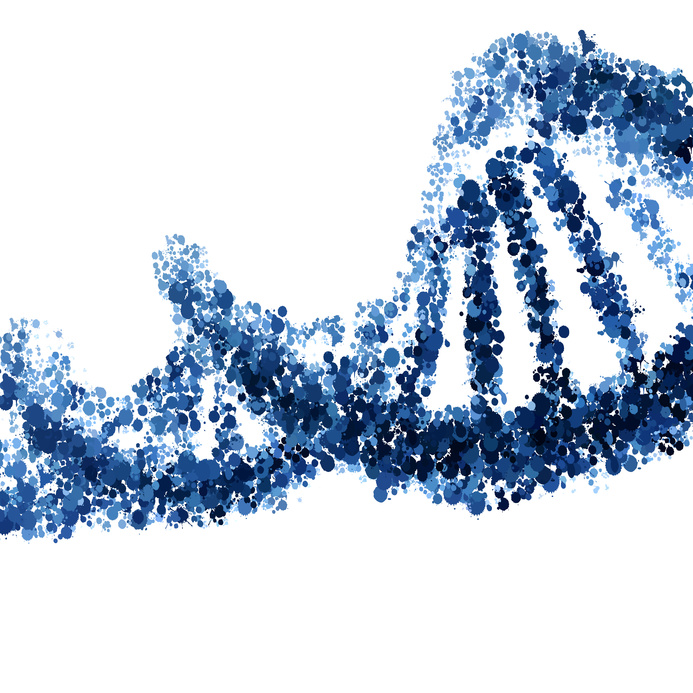
Like most people doing family research we have many branches that we are climbing to find those elusive missing family members or break down those brick walls that will tell us who the father of our 5 times great grandfather was. To aid us in our quest we now have the ability to prove our lineage through genetic testing for genealogy.
So what is genetic testing? Most people know that we inherit DNA from our parents; nuclear DNA is passed from mother and father to child. This determines everything from your eye and hair color to your height and many other traits as well. “A strand of nuclear DNA sequence is more than 3.2 billion letters (all either A, T, G or C).”[i] Humans share 99.9 percent of that sequence and the 0.1 percent that varies account for our diversity as human beings. That means that when genetic testing companies compare your DNA against other subjects’ DNA sequence they can give you an idea of where you came from.
Different genetic testing for both males and females are available. If you are seeking information about your paternal side of the family, then a Y-DNA test can be performed but only on a male (women lack the Y chromosome). The Y chromosome carried by men is inherited from their fathers who inherited it from their fathers and so on. This type of genetic testing can reveal the origins of your direct paternal line. In other words, you can find out who your 5 times great grandfather was, provided of course that enough samples have been collected by other donors to provide a good cross section for comparison and possible match.
If you are seeking information on your maternal side you can perform a mitochondrial DNA test (mtDNA), both men and women can take this test because both men and women inherit mitochondrial DNA from their mothers. Like the Y chromosome the mitochondria remains essentially intact and provides the road map of your maternal line; your mother, her mother and so on.
So what happens if your DNA has been modified or altered? In particular, would a person who receives a bone marrow transplant now have two sources of DNA? One source being their original pre-existing DNA and the other source from the donor cells of the bone marrow?
Two years ago my father was diagnosed with leukemia and a year later he underwent a bone marrow transplant. I started to wonder could he still take a genetic DNA test for the purposes of genealogy research?
When a person undergoes a bone marrow transplant it alters the DNA in their blood but not the DNA in the rest of their cells. This results in the person being what is referred to as a chimera. A chimera is an individual with a mixture of genetically distinct cells, in laymen’s terms his blood DNA is now that of his donor but his original DNA still exists in his organs and other tissues.
Being a chimera does in fact make DNA testing more complicated, but not impossible. If the DNA test uses a blood sample then it would match the bone marrow donor and not recipient while a test from hair or saliva would match the recipient. So the type of genetic test a chimera takes makes a big difference in the results they will receive.
I recently asked my father to take a genetic DNA test for the purposes of helping to identify his ancestors. I should mention that our surname is JONES, so any help in identifying WHICH Jones line he descends from would greatly help narrow my search since there are quite a few.
I am still learning a lot about the challenges of DNA testing for chimeras but figured the best way to understand would be to have my father take a Y-DNA test and see what his results yield. As a follow up and a comparison, I plan to ask my brother to take the same test and compare his results to my fathers.
As my research continues and the results come back I will write additional blog posts about the experience, the results, and the usefulness of DNA testing a chimera; or as I like to call him, Dad.
[i] http://www.popsci.com/scitech/article/2003-12/putting-gene-back-genealogy?page

